Independent Film Festival Boston: Part 1, by Sarah Brinks
In the wake of one of the most difficult weeks in Boston history, the Independent Film Festival Boston is soldiering on. Bostonians love art, and, in this writer’s opinion, art is one of the best weapons against fear and terror. So this year’s festival feels particularly necessary, as it offers New England and the world the opportunity to join together and laugh, cry and ponder together. The Independent Film Festival Boston offers a wide variety of films, which are hopefully represented in my reviews.
Wasteland
I am one of those people who will see anything in which an actor I like stars. This has sometimes led to great discoveries, and has other times led to great disappointments. So when I saw that Iwan Rheon (Simon from Misfits) was in a film called Wasteland, I was in. Fortunately, this was one of those great discoveries. Not only was Rheon in the film, but an almost unrecognizable Mathew Lewis (Neville Longbottom from the Harry Potter films) and Gerard Kearns (Ian from the UK version of Shameless) were also featured.
The film opens with Harvey (Luke Treadaway) in an interrogation room, beaten bloody, being questioned by Detective Inspector West (Harry Potter alumni Timothy Spall). Harvey goes on to tell him the story of the six weeks after his release from prison, up to his arrest that evening. Harvey and his three mates – Dempsey (Rheon), Dodd (Lewis), and Charlie (Kearns) – planned to rob a local members club in Leeds, England as revenge on the drug dealer that framed Harvey and got him sent to prison for possession of heroine. Along the way, Harvey reignites his romance with local beauty Nicola (Vanessa Kirby), and pals around town with his friends.
I am a self-professed Anglophile, so I tend to watch a lot of British cinema. However, the film is set in the north of England where the accents can be quite challenging for American ears. People who struggle with those types of accents may want to wait for the DVD release so they can use the subtitles. After about five minutes or so, I got into the rhythm of the accent and caught most of what they were saying, so don’t let that scare you away from this film.
Wasteland is basically a British Ocean’s Eleven or Usual Suspects. You can see the end coming, but the details make it interesting. What makes Wasteland so much fun is that these three guys are not proper criminals at all. They are just working class kids with too much time on their hands and a desire for revenge. The interplay between the four guys is a lot of fun to watch, as is the “preparation montage” that every great heist film needs. Once you finally see how the heist is done, you realize how clever their problem solving is.
Wasteland was filmed in less then a month, and it looks great. They use the background of Leeds to great effect. There is some noticeably flashy camerawork but it works in the context of the film without being a distraction. The music, by Neil Athale, is great, and fits the tone of the film perfectly. Wasteland is making the festival circuit right now; if you can catch it in the theater, On Demand, or DVD I highly recommend it.
World Fair
World Fair is a short film in which five senior citizens share their memories of going to the 1939 New York World’s Fair. One of the contributors, Ephraim Horowitz, had bought 400 feet of color 8MM film stock before he went to the World’s Fair with his wife and sister on the last day it was open. Much of the footage in the short film came from Ephraim’s collection, and it is beautiful to see. The other four interviewees in the film went to the fair as children. Jim Stevenson went with his dad, and wanted to go to the Heinz building to get a pickle pin that his friends had all gotten when they visited the fair. Seymour Sorkowitz went with a school group, and wanted free candy, a luxury kids had gotten used to going without during The Great Depression. He got it, but got lost along the way and had to spend his day at the fair in the police station.
Each of the subjects talk about what it was like post-depression to see such extravagance after a time of such poverty. They all said they felt that they were seeing the future at the fair, with all the futuristic buildings and machines. Seymour got his first look at television there and thought it would never catch on. They all had very fond memories and still carry them close to their hearts as they age into their eighties and nineties. Each of the five seniors is an interesting character with fun, moving stories to tell. This twenty-five minute film is a pleasant look back a moment in history when people dared to dream big.
Here One Day
Here One Day is a documentary about filmmaker Kathy Leichter’s mother Nina’s struggle with depression and eventual suicide, and the effect that choice has had on the Leichter family. Kathy is a mother now herself and living in the same New York apartment where her mother made the choice to jump out of a window and kill herself. Here One Day is the deeply personal story about loosing a mother and the Leichter’s journey through grief and eventual acceptance. It is also an analysis of Nina Leichter’s battle with depression, and the circumstances that led to her suicide, as told through family movies, photographs, interviews, and audio tapes she had recorded of her own thoughts and feelings.
One of my favorite aspects of the film is that Leichter gets to each person’s motivations for their behaviors that may or may not have ultimately contributed to Nina’s eventual suicide. Leichter interviews her father (Franz Leichter), her brother (Josh Leichter), her mother’s sister, and a close personal friend of Nina’s. Each person shares his or her memories, interpretations, and regrets. The film is focused on the Leichter families journey but it is also largely about the effects of loosing a parent. Franz tells the story of loosing his mother, who was Jewish and an advocate for women and the underprivileged in pre/Nazi Germany. Eventually Franz and his family got out of Germany while his mother died in a concentration camp. It was his mother’s legacy and untimely death that drove him to pursue politics and eventually to become a state senator for New York. His career was quite demanding of his time and left Nina often feeling alone. Josh talks about his need to put distance between his life and his family for self-preservation. You hear Nina cry on the audiotapes about how Josh refuses to let her into his and his families’ lives. The family eventually opens up and it is clear how many of those old wounds and hurt feelings are still so close to the surface.
Nina’s sister describes metal illness as a minefield – if you are fortunate, you step around the mine; if you are not, you step on it.
The film is well made and deeply touching. I was able to spend some time with Kathy Leichter for a phone interview, in which we discussed the film and her family.
Have you been enjoying the Independent Film Festival Boston?
We had such a good day at the festival yesterday. My editor (Pola Rapaport) did an editing panel featuring the film and another film – Our Nixon – and it was so fantastic to sit in the audience and hear Pola talk about editing the film, and we showed some clips and it was a packed room. It was terrific.
In the film, I think it was your dad, asked you why you are making the film. You said it was to feel “freer”. Now that the film is complete do you feel freer?
Absolutely, when I started making the film it was nine years after my mom had killed herself and I couldn’t even say the word “suicide. So we’d be filming and my director of photography, who is a good friend of mine, would ask me questions, and I couldn’t say she killed herself. I barely could get out the words that she died and this was nine years after she had died. So in the process of making the film and having to work with all the material and look at hundreds of photographs, before the film I couldn’t even look at photographs of her. I had no photographs of my mom up in the house, nothing. Here was this vehicle I created, unknowingly in some ways, unconsciously that using the movie it became this opportunity to confront and to revisit my mother and grieve and let go of her more without my really knowing that was what I needed to do. But it was so healing and cathartic, it was so freeing. I had to look at all these photographs I had to listen to these audiotapes of her, which I didn’t listen to until way in the process of editing. Through listening to that material and looking at these photographs and having to talk about the story in the edit room. Having to say, “Should we tell people she jumped out of the window here or here?” I really pushed myself to externalize, I guess I ended up externalizing the story so much that it was incredibly freeing. Now I am standing up in front of hundreds of people at these festival screenings that I don’t know and sharing my story. Which in itself is very liberating.
You have a lot of your family in the film. How did they feel about being in the film, particularly your dad and your brother?
It’s been a process; my father has been supportive pretty much all along, although I will say at the beginning the movie wasn’t… It’s not like I came to them and said, “Hey, I’m going to make a film about mom’s death.” It sort of morphed into that and really narrowed down and became about that essentially, but at first it more a general abstract story about mother loss and my family. I think it was very hard for me to realize that I wanted to tell a very intense, personal story and so I backed into it maybe more intellectually. So my dad thought, in the beginning, that it was a film about me and a film about his mother and a film about my mother, it was much looser so I didn’t trick them intentionally but there was a bit of a trick in there because it became about this story that was so personal. Of course they sort of knew what I was doing, but there was a way in which when I finally showed them the rough cut and the film was pretty far along. Those were the hardest screenings I ever did, which was the screening for my father by myself and the screening for my brother with his daughter. I am delighted in how they turned out because the joke was really on me because I thought the screening with my brother would be much harder, because I am telling the story of his separation from my family and the difficulties he had but in fact that screening was… I wouldn’t say easy, it was very emotional, but he was very moved and pleased and open to it.
The screening with my father was actually much more difficult for me because it was clear to me watching it with him how much of his story I had told. I didn’t really realize it until we were sitting there together in silence watching it for an hour and a half. But I will say they have been so supportive. I should say, my brother – in the beginning – didn’t want to be filmed. He felt like this was private material and that bringing a camera into this emotional space was too private. We kept thinking, “How are we going to do this, are we going to have to blur his face?” But then I cut a short nine minute trailer for fund raising purposes and it was still very much a story about mother loss and looking at my grandmother and me, and my brother wasn’t in it at all, and he watched the trailer and stood up from the computer after watching it and said, “I have to be in this movie.” It was a pivotal moment where he realized that the story was about us. It was symbolic, too, because there had been this break and this absence and separation and he threw his hat in the ring and said, “No I am part of this family, I need to be a part of this.” It was very meaningful for both of us and for our relationship. From then on, I filmed with him and interviewed him. He came with me to the premiere in Amsterdam, both of then did, and we did a Q&A together, it has been very healing for the whole family I think. It definitely brought us closer. My brother is coming today for the screening (at the Independent Film Festival Boston).
I love that about documentary film you start them and have no idea where they are going to lead you. Whether it is the personal stuff or a film about something political, you are following people and if you are doing it in a way that is loose enough to be open to your material, you just don’t know where it is going to end up. This project took me eight years to make and two weeks ago I was in Cleveland at the film festival there, and I hadn’t seen it on a big screen for several months and I just sat there and thought, “I can’t believe this is where I am. That I am sitting, watching a film that I made about this story in front of hundreds of strangers. I just can’t believe it.” Even though I have been doing it for eight years and I know what I have been doing, I am aware I was making a film at the end you look back and say, “Wow, I can’t believe where I am now.”
In the film you refer to yourself as the ‘keeper of the Leichter museum’, and throughout the film you see just how much stuff of hers was still in the apartment (the pill bottles, the clothes, the albums). Did you find it was almost like an exorcism to go through it all and finally throw things away and move on that way?
Absolutely, that was part of the process of be coming free. I think the carrying around of personal objects for me, and I think for my parents too, they were big keepers (they weren’t hoarders but they kept a lot of things). There was an emotional connection. You want to keep that emotional connection, so you keep these things, and they are interesting. I actually benefited from being the keeper of the Leichter museum, because as a filmmaker I had all this material to work with. I had 10 hours of beautiful, clean super 8 images of my family that were in the closet because I lived there. The photographs and her poetry and her writing, she kept so much of that which was terrific. But there is also an emotional weight that comes from having all of that stuff, and I mean I will say I thought as I was making the film and documenting some of her things and telling the story that it would be easier to throw the things out, and I have to admit that I haven’t now that the movie’s done, I still have a fair amount of stuff. I’ve thrown some away; it isn’t the entire Leichter museum, I still have a ways to go.
Did listening to the tapes and watching those movies and reading her poetry help you understand her illness better?
It helped us all understand. It was interesting, when we were in Amsterdam at the film festival there, my Director of Photography, Kristen Johnson, who is a very close friend and close friend to my father, we came back from a screening and my father was sitting in the apartment we were staying in and we asked him what it was like to see the movie and he said, “I learned a lot.” I said, “What did you learn?” He said, “One of the things I learned was that your mom was more self-aware of her illness than I thought. The other thing I learned was that her illness was a lot harder on you and your brother then I knew.” I love that he learned things about her and our past through the movie.
I also l learned a lot. She killed herself when I was twenty-eight and it kind of felt like I was 2 or maybe 12. I didn’t feel 28 in terms of our emotional relationship I still had a very young relationship with her because I felt like I hadn’t really grown up. There was a lot of care taking and interdependence and I think that, in the making of this film, I really separated from her. I did the separation from her that I should have done as a teenager, but given her emotional fragility I think that was really hard. So learning about her as someone in my late thirties, early forties, I got to know her as an adult. Now, also, I am a parent and now I have an understanding of the strains of her being a parent and a spouse and working person. I understand those things much differently now that I am in her shoes in some ways. Even just looking at the photographs, understanding her from this perspective really changed the way I think about the pressure she was under and the emotional resources she had and didn’t have and why things happened. I don’t think you can ever really understand why someone commits suicide. I can’t understand exactly, but I see how hard life was for her in a way I didn’t understand before. By the end, when the medication stopped working and she felt incredibly lonely, I can see how hard that was. I don’t think suicide was the answer but I don’t know, it is hard to say.
Mental illness is a difficult topic and you have been showing the film at festivals, has there been a strong reaction from the audience? Has anyone come up to you and said, “You helped me understand my mother’s suicide?”
Oh my gosh yes, they are all like that. In Amsterdam I was flooded by people afterwards, and in Cleveland. I have actually stayed in touch with some people via email after the Cleveland screening, which has been really nice. Email has afforded me a kind of intimacy with my audience that I am really enjoying. So yes, on my blog, people are constantly writing in, on Facebook people are constantly posting, and they are not necessarily people who have seen the film; they have just read about it or watched the trailer. I had a woman in Amsterdam come up to me and say, “I’m your brother.” She identified completely with Josh’s story and Josh’s position in my family. I’ve had many people come up to me and tell me that they had this happen in their family, and their family never talks about it. It inspires conversation. I think because it is so personal it inspires other people to open up. I hope it feels safer for other people to share their stories and I love that because I felt, we all felt, my family felt isolation and we felt the stigma, you know my father was very public about it being a suicide right away. There is still so much stigma and shame surrounding mental illness and suicide that people do not talk about it. There is less then there was in the late ‘90s but in just talking to people yesterday, there is still so much stigma and shame that I am so excited that my film allows people to talk, and I think in that talking you reduce the stigma and you connect people to other people with similar stories, you link them to support services. We are trying to help people feel less alone. It is very emotionally revealing for people and I think it encourages a kind of dialogue about these issues, which is very exciting.
I have one final question to lighten it up a little; what would be your desert island movie?
This is funny because it is a really heavy movie; it might be Ingmar Bergman’s Persona. It is this really amazing film where Liv Ullmann and Bibi Andersson meld into each other, the two women, and it is beautiful and the actresses are amazing. It is a very psychological story about women, I love it, I would just watch it all the time. It would be an intense movie to watch alone on a desert island, but it would be fun. I saw it in college, it has been a long time but it really blew me away.
To see a trailer or learn more about the film Here One Day you can visit: http://www.twosunsmedia.com/HereOneDay.html

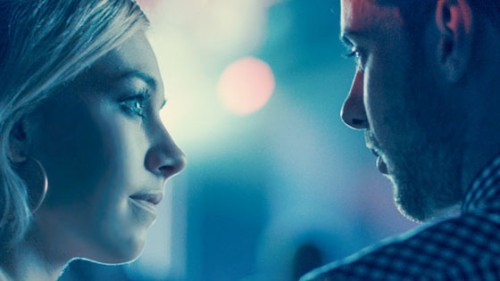
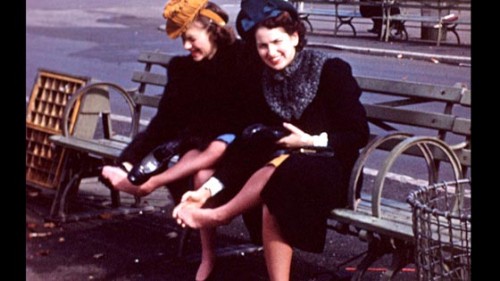
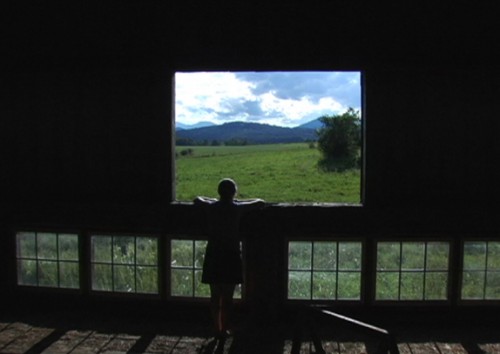
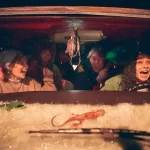
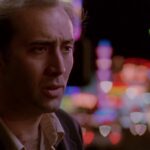


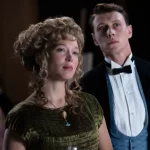
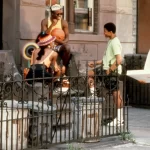
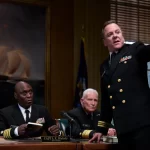
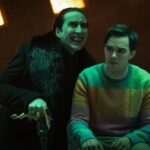





















I wasn’t as keen on WASTELAND as you, but I will agree that Iwan Rheon is one to watch.